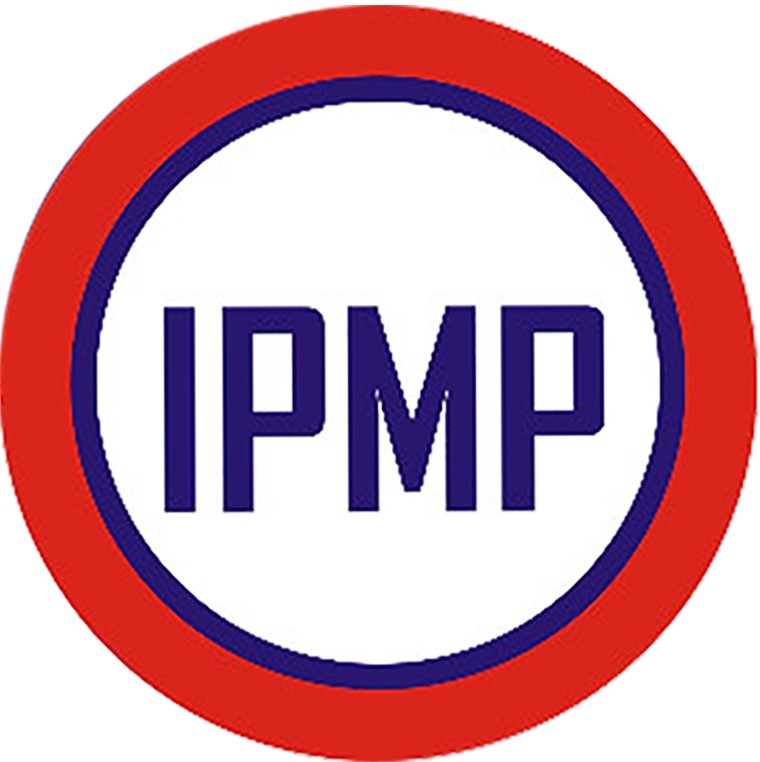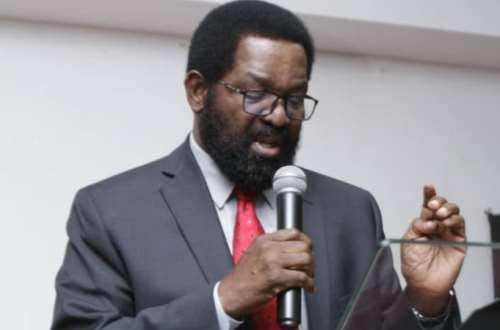| Year | Document Download |
| 2023 | 2023 Conference Gallery |
| 2023 | 2023 Conference Brochure |
| 2022 | 2022 Conference Brochure |
| 2021 | 2021 Conference Brochure |
Licensing Program
The Institute of Project Management Professionals Continuing Professional Development (CPD) is widely recognised as a mandatory way to improve project management professional standards and skills of newly admitted individual members and their industries. The institute’s CPD is essential as it helps to ensure that further learning is progressed in a structured, practical and relevant way to guarantee that newly admitted members apply efficiencies to the teaching; the CPD allows newly admitted individual members to focus on what specific skills and knowledge they require over a short-term period, say six (6) months, to be recognised for improvement within their proficiency and skill sets. The CPD program is made of two packs, which include Program Pack 1: Project Management General Knowledge and Program Pack 2: Professionals Development (Technical Knowledge)
Program Pack 1: Project Management General Knowledge
The compulsory online continuing professional development ensures that newly admitted individual members enhance their skills and abilities once they have formally qualified. Typically, academic qualifications may have already been completed at this stage, and an individual is now working within their specific industry and job function.
Below are the number of modules (courses) that are mandatory for newly admitted members and their various face-to-face training modules.
The critical course to be studied in Program Pack 1: Project Management General Knowledge typically includes:
-
- PMP101 Project Management Framework: Participants learn about the foundational principles, processes, and project management methodologies. This includes understanding project life cycles, stakeholders, and organisational structures.
- PMP102 Project Integration Management: This field focuses on coordinating all aspects of a project, ensuring seamless execution and alignment with organisational goals.
- PMP103 Project Scope Management: This course covers techniques for defining and controlling project scope, managing changes, and ensuring deliverables meet requirements.
- PMP104 Project Schedule Management: This course teaches methods for developing, managing, and controlling project schedules, including tools like Gantt charts and critical path analysis.
- PMP105 Project Cost Management: This course explores budgeting, cost estimation, monitoring, and control techniques to keep projects financially on track.
- PMP106 Project Quality Management: Emphasizes ensuring that project deliverables meet the required quality standards and align with stakeholder expectations.
- PMP107 Project Resource Management: This area addresses managing human resources, materials, and equipment effectively throughout the project lifecycle.
- PMP108 Project Communications Management: This section covers strategies for effective communication within project teams and with stakeholders to ensure clarity and transparency.
- PMP109 Project Risk Management: This focuses on identifying, analysing, and responding to project risks to minimise their impact on project outcomes.
- PMP110 Project Procurement Management: This section discusses the processes of procuring goods and services from external sources to support project execution.
- PMP111 Project Stakeholder Management: This course examines identifying, engaging, and managing stakeholders to address their needs and expectations.
Program Pack 2: Professionals Development (Technical Knowledge)
In the ever-evolving landscape of business and innovation, the art and science of project management stand as the cornerstone of success. Professional development (Technical Knowledge) is not just training; it’s a beacon of knowledge for professionals and practitioners who aspire to elevate their projects from mere ideas to triumphant realities. The journey through the training is akin to embarking on a transformative expedition. With each course, the veils shrouding the intricacies of project management are lifted, revealing the core principles, strategies, and insights that propel projects to their zenith.
This training is the brainchild of a collaboration among some of the most astute minds in project management. It distils decades of combined experience, lessons learned from successes and setbacks, and the latest methodologies that have reshaped projects’ management and delivery. It’s a guide that acknowledges the challenges of modern project management and offers pragmatic solutions tailored to today’s dynamic environments.
The critical course to be studied in Program Pack 2: Professionals Development (Technical Knowledge) typically includes:
-
- FTFT001 Understanding Project Management: This course covers the topics of the importance of effective project management, definition and critical concepts, project life cycle, project management processes, project management triangle (scope, time, cost), project initiation, defining project goals and objectives, stakeholder identification and analysis, feasibility studies, and creating the project charter.
- FTFT002 Standard for Project Management: This course will introduce project management standards, twelve project management principles, and eight project performance domains.
- FTFT003 Project Requirements and Planning: This course covers topics including an introduction to project requirements, eliciting requirements, analysing and prioritising needs, documenting requirements, project planning, project scheduling and resource allocation, risk management in projects, stakeholder communication and engagement, and practical application and case studies.
- FTFT004 Project Portfolio Management: This course will include the following topics: introduction to project portfolio management, project selection and prioritisation, resource management in PPM, and risk management in PPM.
- FTFT005 Project Stakeholder Management: This course covered the following definition and importance of project stakeholders, stakeholder identification and categorisation, stakeholder mapping techniques, understanding stakeholder expectations and interests, assessing stakeholder influence and impact, prioritising stakeholders based on analysis, developing stakeholder engagement plans, establishing communication channels, techniques for managing stakeholder expectations, identifying and addressing stakeholder conflicts, strategies for resolving stakeholder issues and gathering and utilising stakeholder feedback.
- FTFT006 Developing Project Charter: This course covered the following topics: project charter, objectives, components of a project charter, creating a project charter, significance of project objectives, defining project scope and boundaries, objectives hierarchy and decomposition, and establishing project metrics.
- FTFT007 Developing Work Breakdown Structure (WBS): The course covers an overview of WBS, its definition, its importance, its use in project management, its development, types of WBS, kinds of WBS charts, WBS elements, WBS formats, the construction of WBS for the project, four rules to consider for WBS development, and establish change control.
- FTFT008 Project Scheduling: This course covers the following topics: definition and importance of project scheduling, critical elements of a project schedule, overview of project management methodologies, techniques for identifying project tasks, dependency relationships, required path method (CPM) and program evaluation and review technique (PERT), time and cost estimation methods, accuracy and uncertainty in estimation, contingency planning, and risk management in scheduling.
- FTFT009 Agile Project Management: The course introduces agile methodologies, the scrum framework, kanban principles and practices, agile planning and estimation, agile execution and monitoring, agile collaboration and communication, scaling agile, and agile tools and technology.
- FTFT010 Project Information System: This course covered areas including introduction, definition of project information system, key components, benefits, role of information systems in project management, types of project information systems, project management methodologies, resource allocation, resource scheduling, risk management in PIS, project monitoring and tracking tools, planning and organising project information, project information management plan, information management plan, etc.
- FTFT011 Strategic Project Management: The unit covers the following: defining strategic project management, the relationship between strategy and project management, aligning projects with business strategy, project selection models and criteria, strategic planning in project management, strategic planning process, tools and techniques in strategic planning, stakeholder management and communication strategies, identifying and managing stakeholders, effective communication in a strategic context, strategic decision-making, strategic decision-making in uncertain environments, change management and organisational culture, etc.
-
- FTFT012 Project Management Leadership: This unit will cover the following topics: introduction, leadership and project management, personality, leadership styles, leadership theories, leadership communication, managing team meetings, creating a project culture, and innovation on projects.
-
- FTFT013 Project Bidding Techniques: This unit is designed to provide readers with a comprehensive understanding of project bidding in various industries. Readers will learn the key strategies, techniques, and best practices for successful project bidding. The unit covers the entire project bidding lifecycle, from identifying opportunities and preparing bids to submitting proposals and negotiating contracts. The topics covered in this unit include an introduction to project bidding, understanding bid documents, market research and opportunity identification, bid preparation and planning, proposal writing and presentation skills, risk management in bidding, technology and tools in project bidding, submission and post-bid activities, and legal and contractual aspects of project bidding.
-
- FTFT014 Project Consulting Services: Discuss consulting services, service requirements, conflicts of interest, selection process, method of selection, expression of interest, request for proposal evaluation, understanding a Request for Proposal (RFP), RFP vs. RFQ vs. RFI, Letter of Invitation (LOI, Instruction to Consultants (ITC), Bid Data Sheet (BDT), Standard Forms: Technical (TP) and Financial Proposal (FP), Preparing of proposal, terms of reference (TOR), Conditions of Contract (CoC), Request for Quotation (RFQ), and Request for Information (RFI).
-
- FTFT015 Project Cost & Budgeting: This unit covers topics including Introduction to Project Cost Management, Overview of Project Management, Importance of Cost Management in Projects, Key Concepts and terminology, Cost Estimation, Types of Cost estimates, Estimation techniques: Analogous, Parametric, Bottom-up, Three-point, Tools and software for cost estimation, Budgeting, Types of budgets and budgeting techniques, Cost estimation and control, Cash flow forecasting, Cost aggregation, Reserve analysis, Baseline budgeting and funding, Cost Control, Earned Value Management (EVM), Forecasting, Cost variance and performance analysis etc.
-
- FTFT016 Project Financing: This unit covers topics including an overview of project finance, principles of investment appraisal, Sources of Project Finance, Equity financing, Debt financing, Public-private partnerships (PPPs), and international financing institutions.
-
- FTFT017 Project Appraisal and Evaluation: This unit covers topics including an overview of project appraisal, its importance in decision-making, types of projects and their characteristics, stakeholder analysis and identification, project identification and definition, financial appraisal techniques, cost-benefit analysis, economic appraisal, social and environmental impact assessment, and final project and presentation.
-
- FTFT018 Application of Project Financial Techniques: This unit covers the financial planning process, working capital management, financial reporting and analysis, application of financial techniques in real-world projects, project performance and post-completion analysis, monitoring and controlling financial performance, post-completion audits, lessons learned and best practices.
-
- FTFT019 Project Sustainability: This unit covers the following topics: sustainable project management, critical principles of sustainable project management, benefits of sustainable project management, core concepts of sustainability, projects integrating sustainable methods (PRiSM), sustainability standards in project management, utilising a sustainability standard in project management, p5 standard for sustainability in project management, application of 5P standards in project sustainability, sustainable project managers, critical aspects of sustainable project managers, and sustainability and project cycle.
-
- FTFT020 Project Impact Assessment: The unit covers the impact assessment, types of impact assessment, project impact assessment, need for project impact assessment, element of project impact assessment, critical elements of project evaluation, and purpose of project evaluation.
-
- FTFT021 Project Monitoring and Evaluation: This unit will cover an introduction to project monitoring and evaluation, project planning and design, monitoring tools and techniques, data analysis and interpretation, evaluation design and frameworks, data collection for evaluation, data analysis for evaluation, reporting and utilisation of findings, case studies and practical applications, emerging trends in project monitoring and assessment, etc.
-
- FTFT022 Managing with Microsoft Project: Microsoft Project is a powerful project management software encompassing various topics and functionalities. The course will cover project planning and scheduling, task management, resource management, budgeting and cost management, tracking and monitoring, collaboration and communication etc.
SOCIAL MEDIA PLATFORM ETHICS
Social media has emerged as an indispensable tool for communication and interaction. In addition to its affordability, the feature with which it offers group interactions makes it more appealing. This has significantly motivated laggards (late adopters of technology) to switch to smartphones.
WhatsApp groups being the most interactive instant messaging platform, which has emerged to be more active than all the active SNSs (social networking sites), has numerous advantages. However, to appreciate these advantages in a better way, the institute ought to be mindful of some ethics which are necessary for virtual interactions.
This article highlights on the Group Message Settings (Preferable) and the platform Group Ethics
Group Message Settings (Preferable)
- IPMP Social Media Platforms (WhatsApp, Facebook, LinkedIn, Instagram, Twitter, etc.) shall have a name that represent the institute and the institute Logo shall be used as group profile picture
- The purpose of establishing IPMP Social Media Platforms (WhatsApp, Facebook, LinkedIn, Instagram, Twitter, etc.) must be communicate and approved by the ethics and conduct director in consultation of the executive board
- IPMP Social Media Platforms (WhatsApp, Facebook, LinkedIn, Instagram, Twitter, etc.) shall be managed by an administrator appointed or approved by the ethics and conduct director
- IPMP Social Media Platforms (WhatsApp, Facebook, LinkedIn, Instagram, Twitter, etc.) shall seek consent of individual members before adding participants to groups
- IPMP Social Media Platforms (WhatsApp, Facebook, LinkedIn, Instagram, Twitter, etc.) shall be a public communication platform for all members.
Group Ethics – Do’s
- Keep to the purpose of the group, send messages for all in the Group; and not limited to certain individuals.
- To acknowledge and recognized individual for achievement professional.
- The wish of member’s birthday is permitted in the group, as it is also way of celebrating our members.
- Advertisement related to Institute of Project Management Professionals shall be allowed since, the platforms are the means of communication to members.
- Keep in mind that your words can be interpreted in multiple ways, so use short sentences that can’t be misinterpreted.
- Circulate only authentic and factual messages. Ask yourself these four questions before posting: (1) Is it true? (2) Is it relevant? (3) Is it necessary? (4) Is this a good time to post?
- Check the date of the news that you want to forward in the Group; and ensure it is not very old. Remember the news should be relevant to project management and its related fields
- It is better to be a silent spectator in the Group, than being a nuisance by responding to every message posted on the various platforms.
- Politely excuse yourself before you quit the group.
- If you are the Group Administrator: offenders in the group should be cautioned personally; and repeated offenders can be removed permanently.
Group Ethics – Don’ts
- Do not share irrelevant messages about other topics in a particular group.
- Do not post negative messages on religion, community, region, political party because it may indirectly hurt others.
- Do not embarrass fellow member in the group.
- Do not forward advertisement messages or offer messages without factual basis in the group.
- Avoid sending prayer-chain or surprise over recitation of prayer(s) in the group, as the purpose of the same is like the previous point.
- Don’t be offended if others leave the group. Not everyone wants the same information.
Materials Authorized to be Shared
The code is indicated the above that not everything that is worth sharing is suitable for sharing in IPMP group. There are a few exceptions to this. They can be shared in all groups, but they are also optional. IPMP Social Media Platform should think carefully before sharing them:
- Good News: When one graduates, or birthday, may share that good news with the institute members. This type of news can be shared across all IPMP Social Media Platform Groups.
- Sad News: Death, accident, and pandemics are among the sad news you can share with the group and should be related to our members.
- Invitation: Invitation to the institute CPD, annual conference, forum discussions, press release, or open house.
- Seasonal Greetings: When it’s Eid, new year and national anniversary, you can share congrats and best wishes with all groups that share with you the same celebration or understanding about it.

 Dr. Thelma Aboagyewa Frimpong Mensah (DBA)
Dr. Thelma Aboagyewa Frimpong Mensah (DBA)
Governing Council Member
Thelma Aboagyewa Frimpong Mensah, holds a Doctorate Degree of Business Administration, Finance option from SMC University, Switzerland, Master of Businesses Administration with Finance option from Sikkim Manipal University, India and a Bachelor Degree in Sociology and Political Science from the Ghana’s Premier University “Legon”.
Again, she holds Professional Doctorate and Fellow Member of Institute of Project Management Professionals Ghana, and in 2022, Dr Thelma Frimpong Mensah was nominated as Member of the Governing Council of Institute of Project Management Professionals, Ghana.
Her research area was in corporate governance and financial performance, she has proven experience in finance as she serves as the lead consult and CEO of Desert Dew Services and Consultancy. She also has over 12 years’ experience in general management, administration, customer experience, sales consultancy and mentoring. Financial analysis and budget preparations are key areas of expertise as well.
Currently, she works as the Billing Operations Manager and CFO of Olidia Care Inc, USA, Senator for Ghana with the World Business Angels Investment Forum, Senior Vice President in charge of education with the African Youth Institute, Ghana, Executive Board Member in charge of Women Empowerment and Entrepreneurship of the Shakers and Movers Educational Foundation, USA, Ghana Director for Women Empowerment for the African Youth and Diaspora Organization, USA, Ghana International speaker on corporate, conference and relationship matters.


















